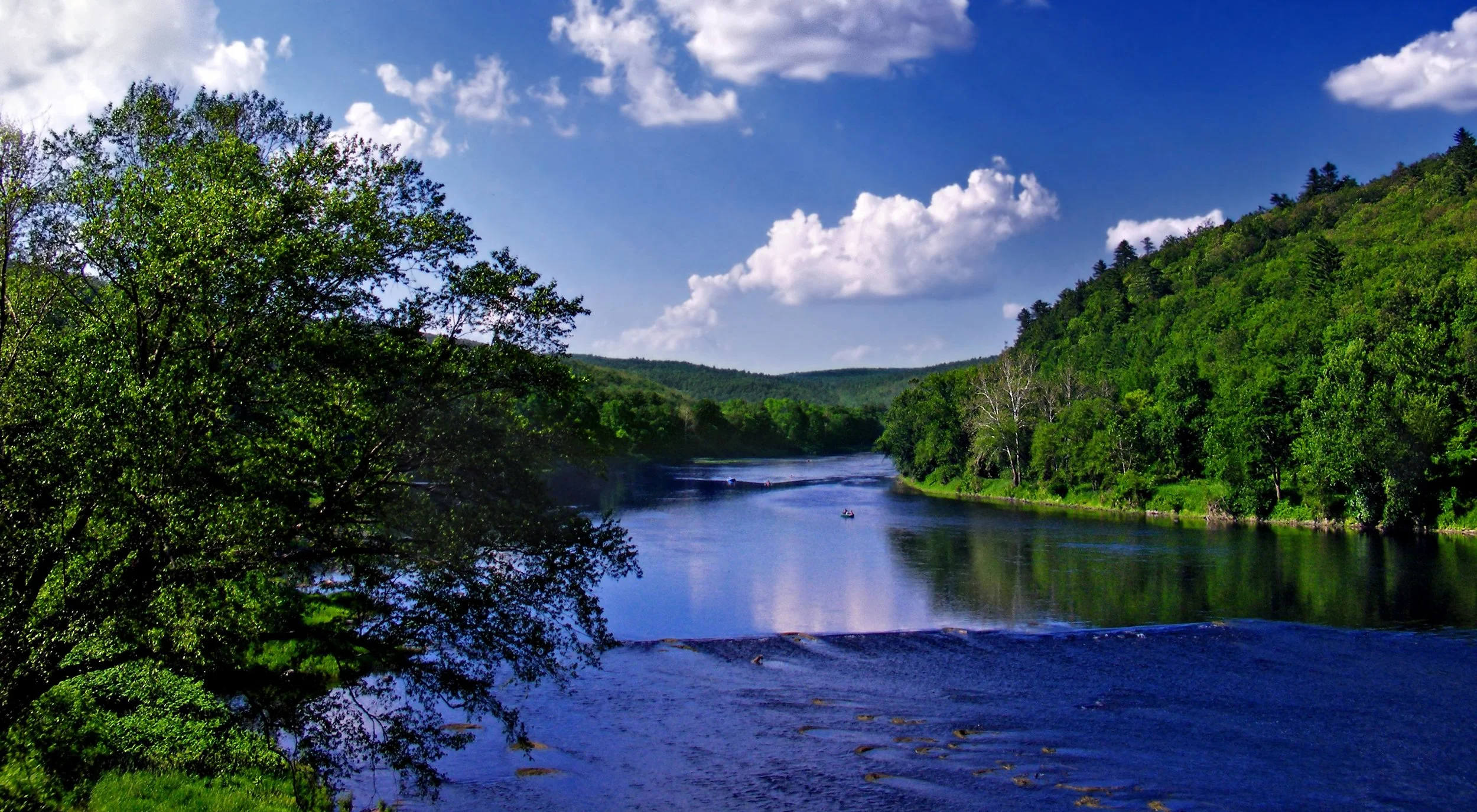Philadelphia, PA — Representative Dwight Evans joined with environmental advocates and the Coalition for the Delaware River Watershed (CDRW) at Bartram’s Garden today to celebrate the 50th anniversary of the passage of the Clean Water Act. They highlighted millions of dollars of additional federal and state investments over the past year that will improve water quality in the region and called on Congress to act quickly to pass important legislation that will further protect the drinking water of millions in our region.
Imagine a #DayWithoutTheDelaware: 50 years of the Clean Water Act
Inspired by “Imagine a Day Without Water”, organizations within the Delaware River Basin come together every year on October 18 for a social media day of action around the Clean Water Act anniversary in order to raise awareness about the essential resources the Delaware river provides.
Meet CDRW's New DE State Lead, Robin Glazer!
It is no surprise that the power of the Coalition comes from our 180 member organizations. More specifically the many talented, passionate, and dedicated individuals who work at those organizations and are making an immense difference in improving the health of the Delaware River Watershed - from the headwaters down to the Delaware Bay. Recently, the Coalition welcomed Robin Glazer, our new Delaware State Lead and Environmental Advocate for Delaware Nature Society.
At the forefront of our work are the Coalition’s State Leads - who are responsible for convening and organizing work around Coalition priorities, while also looking for emerging issues that may need Coalition support. Our State Leads also work to ensure that Coalition members are knowledgeable about basin issues and engage with the larger membership to help solve them.
Member Spotlight: Following Years of Research, Willistown Conservation Trust Finds Water Quality Impairments in the Headwaters of Ridley, Crum, and Darby Creeks
Newtown Square, Pennsylvania — From 2018 through 2021, the Watershed Protection Program of Willistown Conservation Trust (WCT) conducted monthly monitoring at ten sample sites in three tributaries to the Delaware River in northeastern Chester County: the headwaters of Darby, Crum, and Ridley Creeks. Following 41 monitoring visits and over 7,500 different measurements, they found that the water quality is moderately impaired at all sample sites. The entirety of the Watershed Protection Team’s research has since been summarized in a 48-page “State of our Streams Report.”
Coalition Priority: North American Wetlands Conservation Act
In 1989, Congress directed the Department of the Interior to compare the estimated total number of wetland acres in the 1780s [Revolutionary Wartime] and in the 1980s in areas that now comprise each state. This request included an estimated percentage of wetlands loss to be calculated in each state during this 200-year period. To their dismay, a 53-percent loss of historical wetlands was estimated to have occurred over just two centuries.
CDRW on the Road: Pennsylvania Member Meet-up
Coalition partners in Pennsylvania have much to celebrate after a successful budget season in Harrisburg. As generational funding for clean water begins benefitting the Delaware River Watershed, and waterways statewide, Coalition members took the opportunity to celebrate our shared successes and connect with member organizations in the Commonwealth.
New Jersey Has Plastic Reduction in the Bag!
On May 4, 2022, NJ implemented the strongest law in the country to help reduce plastic pollution. Through our Plastics Free July Survey, NJLCV, CDRW, and ANJEC teamed up to better understand how the law is working for NJ residents and what we can do to make the transition easier. Thank you to all those that took the survey!
Eco-Ableism: Understanding Inaccessibility in the Environmental Movement and Taking Action
Understanding how nature and the environmental movement are not always universally accessible is an important step in breaking down barriers to participation and fostering inclusion. One form of exclusion can be found in eco-ableism, or the centering of able-bodies over individuals with disabilities in ecological and environmental lenses. In other words, assuming there is equal access to advocacy, natural areas, or environmental work–especially in regards to individuals’ physical and mental capacities– is harmful to all individuals within environmental movements.




